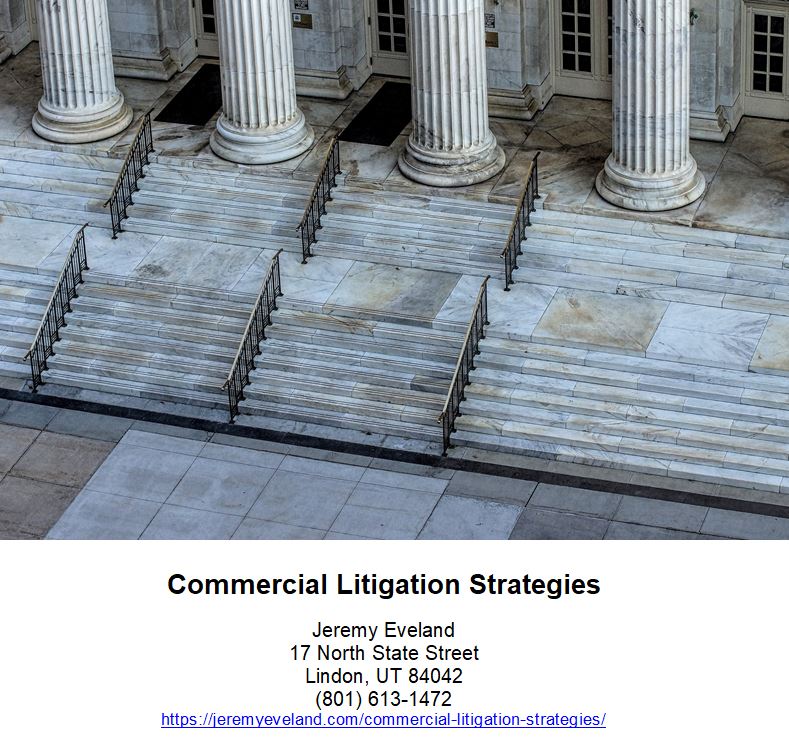Corporate and Business Law
-
Legal Topics
“Navigating the Complexities of Corporate and Business Law – Your Path to Success”
Introduction
Corporate and Business Law is a complex and ever-evolving field of law that governs the formation, operation, and dissolution of businesses. It is a broad area of law that covers a wide range of topics, including corporate governance, contracts, mergers and acquisitions, securities, and intellectual property. Corporate and Business Law is an important part of the legal system, as it helps to ensure that businesses are operating in a fair and legal manner. It also helps to protect the rights of shareholders, creditors, and other stakeholders. Understanding the basics of Corporate and Business Law is essential for anyone involved in the formation, operation, or dissolution of a business.
Analyzing the Pros and Cons of Outsourcing Legal Services
Outsourcing legal services is becoming increasingly popular among businesses of all sizes. It can provide a cost-effective way to access legal expertise without the need to hire a full-time in-house lawyer. However, there are both advantages and disadvantages to outsourcing legal services that should be considered before making a decision.
Pros
One of the main advantages of outsourcing legal services is cost savings. By outsourcing legal services, businesses can access the expertise of a lawyer without the need to pay a full-time salary. This can be especially beneficial for small businesses that may not have the budget to hire a full-time lawyer. Additionally, outsourcing legal services can provide access to a wider range of expertise than an in-house lawyer may have. This can be especially beneficial for businesses that require specialized legal advice.
Another advantage of outsourcing legal services is that it can help businesses stay up to date with the latest legal developments. By outsourcing legal services, businesses can access the latest legal information and advice without having to invest in costly research. This can help businesses stay compliant with the latest laws and regulations.
Cons
One of the main disadvantages of outsourcing legal services is that it can be difficult to establish trust with an outside lawyer. When outsourcing legal services, businesses must ensure that the lawyer they are working with is reliable and trustworthy. Additionally, businesses must ensure that the lawyer they are working with is knowledgeable and experienced in the relevant area of law.
Another disadvantage of outsourcing legal services is that it can be difficult to maintain control over the legal process. When outsourcing legal services, businesses must ensure that the lawyer they are working with is following their instructions and providing the necessary advice. Additionally, businesses must ensure that the lawyer they are working with is providing timely updates on the progress of the legal process.
In conclusion, outsourcing legal services can provide businesses with cost savings and access to specialized legal expertise. However, businesses must ensure that they are working with a reliable and trustworthy lawyer and that they are able to maintain control over the legal process. By carefully considering the pros and cons of outsourcing legal services, businesses can make an informed decision about whether it is the right choice for them.
Exploring the Benefits of Corporate Governance
Good corporate governance is essential for the success of any business. It is the set of rules, processes, and practices that ensure a company is managed in an ethical and responsible manner. Corporate governance helps to ensure that the interests of all stakeholders, including shareholders, employees, customers, and the community, are taken into account.
The benefits of corporate governance are numerous. It helps to ensure that a company is run in a transparent and accountable manner. This helps to build trust between the company and its stakeholders, which can lead to increased investment and improved customer loyalty. Corporate governance also helps to ensure that the company is managed in a way that is in line with its mission and values. This can help to create a positive corporate culture and foster a sense of purpose and commitment among employees.
Good corporate governance also helps to protect the interests of shareholders. It helps to ensure that the company is managed in a way that maximizes shareholder value. This can include ensuring that the company is run in a way that is compliant with applicable laws and regulations, as well as ensuring that the company’s financial statements are accurate and up to date.
Finally, corporate governance can help to ensure that the company is managed in a way that is in the best interests of all stakeholders. This can include ensuring that the company is run in a way that is socially responsible and that takes into account the needs of the community.
In summary, corporate governance is essential for the success of any business. It helps to ensure that the company is managed in an ethical and responsible manner, which can lead to increased trust and investment, improved customer loyalty, and a positive corporate culture. It also helps to protect the interests of shareholders and ensure that the company is managed in a way that is in the best interests of all stakeholders.
Navigating the Complexities of Mergers and Acquisitions
Mergers and acquisitions (M&A) are complex transactions that involve the combination of two or more companies. The process of M&A can be lengthy and complex, and requires careful consideration of the legal, financial, and operational implications of the transaction.
When considering an M&A transaction, it is important to understand the different types of transactions that can occur. Mergers involve the combination of two companies into one, while acquisitions involve one company purchasing another. In both cases, the target company is absorbed into the acquiring company.
The legal aspects of M&A transactions are complex and require the expertise of experienced legal counsel. The legal team will need to review the terms of the transaction, including the purchase price, the structure of the transaction, and any potential liabilities. Additionally, the legal team will need to review any existing contracts and agreements between the two companies, as well as any applicable laws and regulations.
The financial aspects of M&A transactions are also complex and require the expertise of experienced financial advisors. The financial team will need to review the financial statements of both companies, analyze the potential impact of the transaction on the financial performance of the combined entity, and assess the potential risks and rewards of the transaction.
The operational aspects of M&A transactions are also complex and require the expertise of experienced operational advisors. The operational team will need to review the operations of both companies, analyze the potential impact of the transaction on the operations of the combined entity, and assess the potential risks and rewards of the transaction.
Navigating the complexities of M&A transactions requires a team of experienced professionals who understand the legal, financial, and operational implications of the transaction. It is important to ensure that all parties involved in the transaction are aware of the potential risks and rewards, and that the transaction is structured in a way that is beneficial to all parties involved.
Understanding the Basics of Business Formation
Business formation is an important step for any entrepreneur looking to start a business. It is the process of creating a legal entity for a business, such as a corporation, limited liability company (LLC), or partnership. The process of business formation involves a number of steps, including selecting a business structure, filing the necessary paperwork with the state, and obtaining the necessary licenses and permits.
When selecting a business structure, it is important to consider the advantages and disadvantages of each option. The most common business structures are sole proprietorships, partnerships, corporations, and LLCs. Each structure has its own set of advantages and disadvantages, such as liability protection, tax implications, and ease of formation.
Once the business structure has been selected, the next step is to file the necessary paperwork with the state. This typically includes filing articles of incorporation or organization, as well as other documents such as operating agreements and bylaws. Depending on the state, there may also be additional paperwork that needs to be filed.
In addition to filing the necessary paperwork, businesses must also obtain the necessary licenses and permits. This includes obtaining a business license, as well as any other licenses or permits that may be required for the specific type of business.
Business formation is an important step for any entrepreneur looking to start a business. It is important to understand the advantages and disadvantages of each business structure, as well as the necessary paperwork and licenses that must be obtained. By taking the time to understand the basics of business formation, entrepreneurs can ensure that their business is properly formed and compliant with all applicable laws.
The Impact of Recent Changes to Corporate Tax Laws
The recent changes to corporate tax laws have had a significant impact on businesses across the United States. These changes have been implemented in order to simplify the tax code and reduce the overall burden on businesses.
The most significant change is the reduction of the corporate tax rate from 35% to 21%. This reduction has resulted in a significant decrease in the amount of taxes that businesses must pay. This has allowed businesses to keep more of their profits and reinvest them into their operations. Additionally, the new tax law has eliminated the corporate alternative minimum tax, which had been a significant burden for many businesses.
The new tax law has also made it easier for businesses to deduct certain expenses. For example, businesses can now deduct up to 100% of the cost of certain investments in the year they are made. This has allowed businesses to invest more in their operations and take advantage of tax savings.
Finally, the new tax law has made it easier for businesses to take advantage of certain tax credits. For example, businesses can now take advantage of the research and development tax credit, which allows them to deduct a portion of their research and development costs. This has allowed businesses to invest more in research and development, which can lead to increased innovation and productivity.
Overall, the recent changes to corporate tax laws have had a positive impact on businesses across the United States. These changes have allowed businesses to keep more of their profits and invest in their operations. Additionally, businesses can now take advantage of certain tax credits and deductions, which can help them save money and increase their profitability.
Q&A
Q1: What is corporate law?
A1: Corporate law is a body of law that governs the formation, operation, and dissolution of corporations. It also covers the legal relationships between shareholders, directors, and officers of the corporation.
Q2: What is the purpose of business law?
A2: The purpose of business law is to provide a legal framework for businesses to operate within. It sets out the rules and regulations that businesses must follow, and provides remedies for when those rules are broken.
Q3: What are the different types of corporate entities?
A3: The different types of corporate entities include corporations, limited liability companies, partnerships, and sole proprietorships.
Q4: What are the advantages of forming a corporation?
A4: The advantages of forming a corporation include limited liability for shareholders, perpetual existence, and the ability to raise capital through the sale of stock.
Q5: What are the responsibilities of a corporate officer?
A5: The responsibilities of a corporate officer include managing the day-to-day operations of the corporation, ensuring compliance with applicable laws and regulations, and representing the corporation in legal matters.
Corporate and Business Law Consultation
When you need help with Corporate and Business Law call Jeremy D. Eveland, MBA, JD (801) 613-1472 for a consultation.
Jeremy Eveland
17 North State Street
Lindon UT 84042
(801) 613-1472
Related Posts
Legal Requirements to Start a Business
Real Estate Attorneys in Salt Lake City Utah
Business Contract Lawyer Riverton UT
Business Law and Intellectual Property
Commercial Litigation Strategies
























